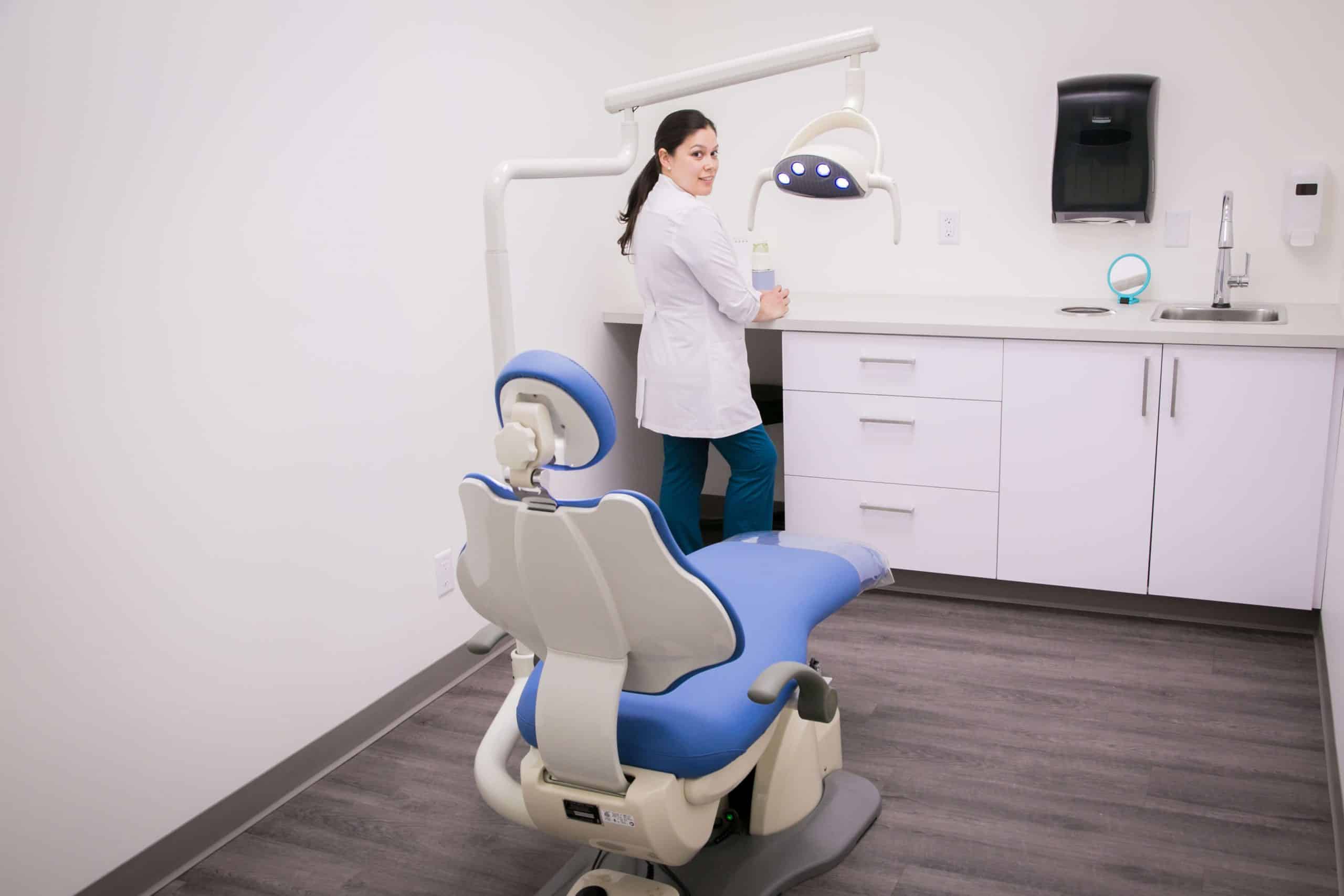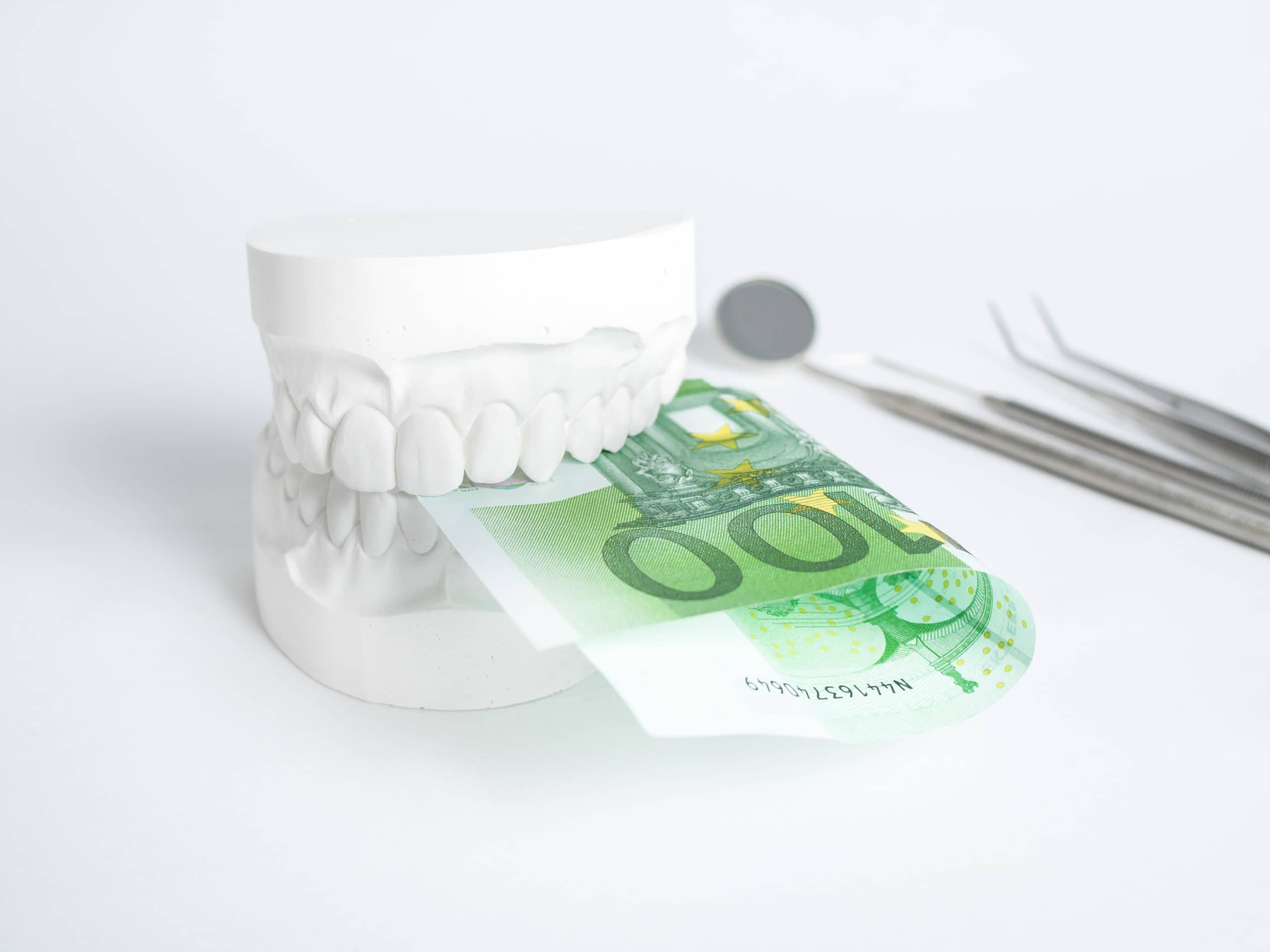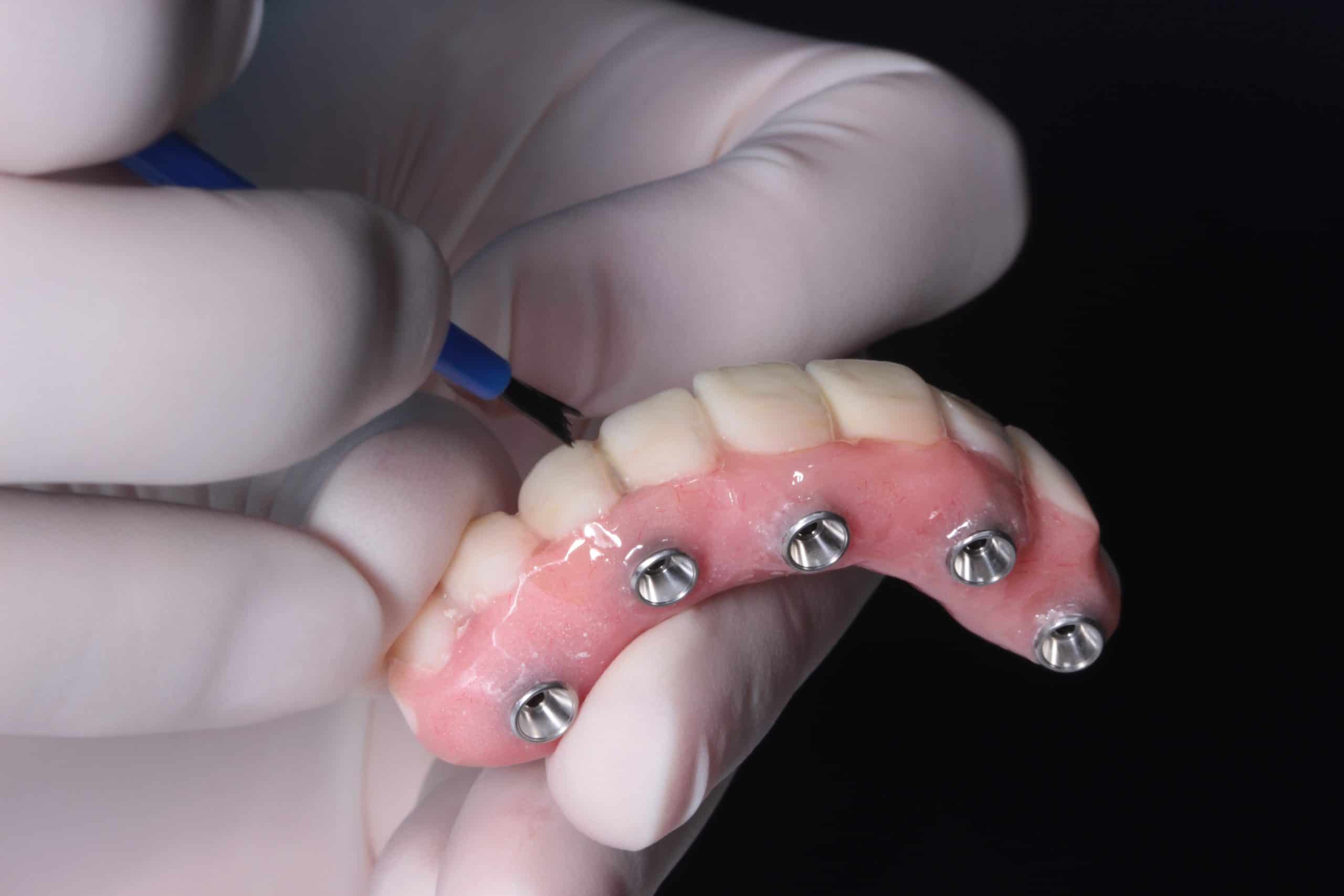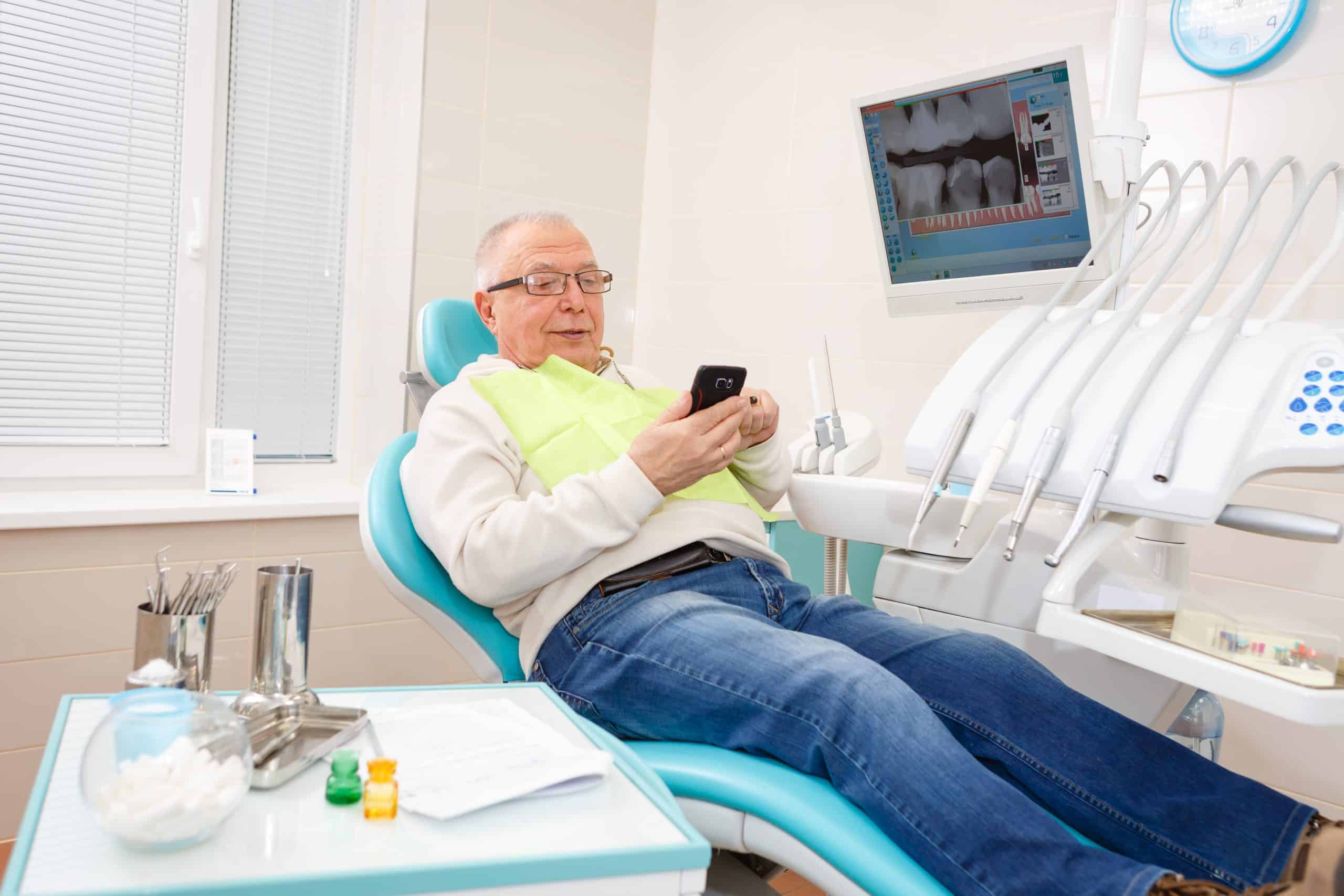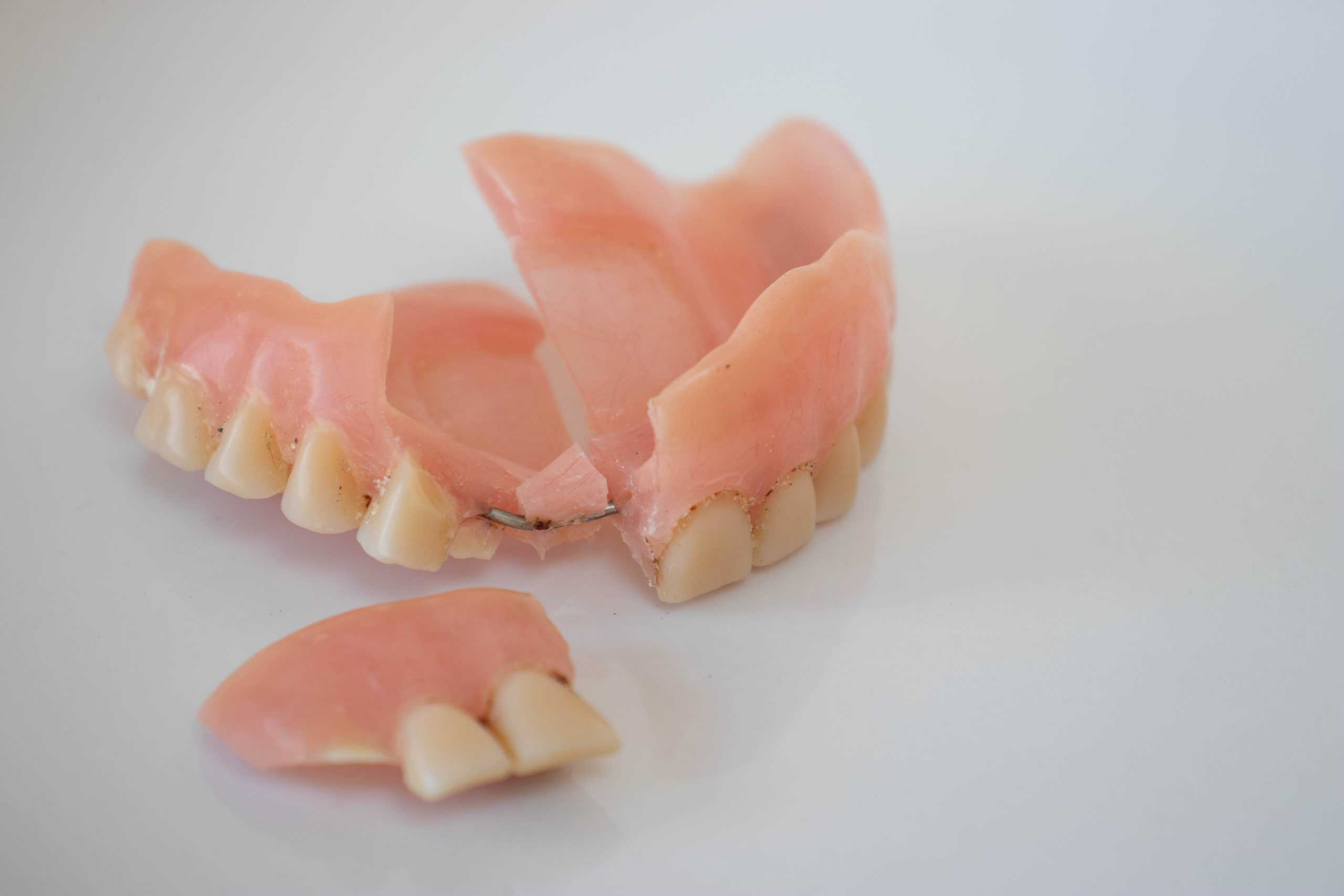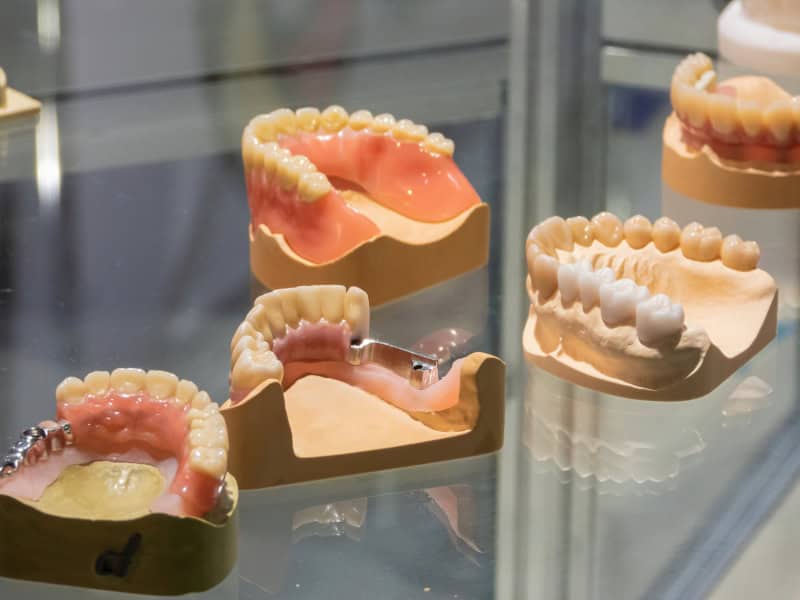
Denture Options: Finding the Right Fit for You
Choosing the right dentures can make a significant difference in your daily life. At Lower Mainland Denture Clinic, we understand that each patient has unique needs and preferences. This guide will introduce you to the three main types of dentures: partial, full, and implant-supported dentures. We’ll cover the benefits and drawbacks of each to help you make an informed choice. Understanding your options is key to finding the best fit for your comfort and health.
Understanding Denture Basics
Definition of Dentures
Dentures are removable appliances designed to replace missing teeth and surrounding tissues. They play an important role in dental health by restoring the function and appearance of natural teeth. Dentures can be made from various materials, including acrylic, nylon, and metal, and are custom-made to fit comfortably in the patient’s mouth.
Importance of Dentures
Dentures are vital for individuals who have lost teeth due to decay, injury, or other health conditions. They help in several key areas:
- Improving Oral Function: Dentures enable better chewing and speaking abilities, which can be significantly impaired by missing teeth. They help distribute bite forces evenly across the mouth, reducing the strain on remaining teeth and oral structures.
- Enhancing Appearance: Dentures fill in the gaps left by missing teeth, providing support to the facial muscles and improving the overall appearance of the face. This can lead to a more youthful look and a boost in self-confidence.
- Maintaining Dental Health: By filling in the gaps, dentures prevent the remaining natural teeth from shifting out of position, which can lead to further dental issues. They also help maintain the integrity of the jawbone and gums.
- Psychological Benefits: Having a complete set of teeth can significantly improve a person’s self-esteem and social interactions. The ability to smile, eat, and speak without embarrassment can greatly enhance one’s quality of life.
Dentures offer a practical solution for those dealing with tooth loss, helping to restore normal function and appearance while supporting overall oral health.
Types of Dentures
Partial Dentures
Partial dentures are designed to replace one or several missing teeth while preserving the remaining natural teeth. They consist of artificial teeth attached to a gum-colored base, which can be secured using metal clasps or precision attachments that connect to your natural teeth. This type of denture helps fill the gaps left by missing teeth, preventing the remaining teeth from shifting and maintaining proper alignment.
Ideal Candidates
Partial dentures are ideal for individuals who have lost a few teeth but still have several healthy natural teeth. They are suitable for patients who want to avoid the extensive dental work required for implants or full dentures and prefer a less invasive solution.
Pros
- Removable: Easy to take out and clean, ensuring good oral hygiene.
- Less Invasive: Does not require surgery, making it a more straightforward option.
- Cost–Effective: Generally more affordable than implants or full dentures.
- Preserves Natural Teeth: Helps maintain the position of the remaining natural teeth, preventing them from shifting.
Cons
- Less Stable: May not be as stable as full dentures or implants, potentially leading to movement during eating or speaking.
- Requires Adjustments: Periodic adjustments may be necessary to maintain a good fit and comfort level.
- Possible Discomfort: Some patients may experience initial discomfort as they get used to the appliance.
Example Scenario
Consider Jane, who lost three teeth in a car accident but still has several healthy teeth. She opted for partial dentures to fill the gaps and maintain her remaining teeth’s position. Jane appreciates the affordability and ease of cleaning that her partial dentures provide.
Full Dentures
Full dentures, also known as complete dentures, replace all the teeth in either the upper or lower arch. These dentures rest directly on the gums and are custom-made to fit the contours of your mouth, providing a natural appearance and comfortable fit.
Ideal Candidates
Full dentures are suitable for individuals who have lost all their teeth in one or both arches. They are the best option for patients needing complete restoration of their dental arch due to extensive tooth loss from decay, injury, or other health conditions.
Pros
- Restores Full Arch: Completely restores the appearance and function of an entire dental arch.
- Improves Appearance: Provides support to facial muscles, enhancing overall facial aesthetics.
- Functional: Improves the ability to eat and speak properly, significantly impacting quality of life.
Cons
- May Feel Bulky: Some patients find full dentures to be bulky and less comfortable initially.
- Requires Adhesives: Often requires the use of dental adhesives to stay in place, which some patients may find inconvenient.
- Potential for Slippage: May move or slip, especially if not fitted correctly.
Example Scenario
Bob, who lost all his teeth in the lower arch due to severe gum disease, chose full dentures. After the initial adjustment period, Bob found that his new dentures allowed him to eat a wider variety of foods and speak more clearly, improving his overall quality of life.
Implant-Supported Dentures
Implant-supported dentures are attached to dental implants that are surgically placed into the jawbone. These dentures provide a more stable and secure fit compared to traditional dentures, offering a solution that feels closer to natural teeth.
Ideal Candidates
Implant-supported dentures are ideal for individuals with sufficient bone density in the jaw who are looking for a long-term, stable solution. They are suitable for patients who want to avoid the movement and potential discomfort of traditional dentures.
Pros
- Very Stable: Implants provide a secure foundation, preventing the dentures from slipping.
- No Need for Adhesives: The stability of implants eliminates the need for dental adhesives.
- Feels More Like Natural Teeth: Offers a more natural feel and greater comfort.
Cons
- Higher Cost: Implant-supported dentures tend to be more expensive upfront due to the surgical procedure.
- Requires Surgery: Placement of dental implants involves surgery and a longer healing process.
- Longer Healing Time: The process can take several months from start to finish.
Example Scenario
Susan, who struggled with loose dentures for years, decided to switch to implant-supported dentures. The implants provided the stability she needed, allowing her to enjoy her favorite foods without worry and speak confidently in social settings.
Making the Right Choice
Factors to Consider
Oral Health Status
The condition of your gums and jawbone is a key factor in determining the type of dentures that will work best for you. Healthy gums and adequate jawbone density are essential for certain types of dentures, particularly implant-supported ones. Healthy gums are necessary for the proper fitting and comfort of dentures. If your gums are inflamed or infected, it can lead to discomfort and complications with wearing dentures. Regular dental check-ups can help maintain gum health, making you a better candidate for dentures. Sufficient jawbone density is especially important for implant-supported dentures. The implants need a strong foundation to be securely placed. If the jawbone is too thin or weak, bone grafting might be required to build up the bone before implants can be placed.
Lifestyle and Preferences
Your daily activities, comfort preferences, and aesthetic desires significantly influence the type of dentures that are best for you. If you lead an active lifestyle, you might prefer the stability of implant-supported dentures, which are less likely to shift or move during activities. Some individuals prioritize comfort over other factors. Full dentures can sometimes feel bulky, while partial dentures and implant-supported dentures often offer a more natural feel. If the appearance of your dentures is a primary concern, you might opt for dentures made from high-quality materials that closely mimic the look of natural teeth. Implant-supported dentures often provide the most natural appearance.
Budget
Financial considerations play a significant role in deciding which type of dentures to choose. Different types of dentures come with varying costs, and it’s important to consider both the initial investment and long-term expenses. Partial dentures are generally more affordable upfront compared to full or implant-supported dentures. Full dentures are moderately priced, while implant-supported dentures have a higher initial cost due to the surgical procedure involved. While implant-supported dentures are more expensive initially, they often provide better long-term value due to their durability and stability, potentially reducing the need for replacements or adjustments over time.
Consultation with a Professional
Importance of Professional Advice
Seeking advice from a denturist or dental professional is essential for making an informed decision about dentures. A professional can assess your oral health, discuss your lifestyle and preferences, and help you choose the best option.
What to Expect During a Consultation
During a consultation, the denturist will conduct a thorough examination of your mouth, including your gums and jawbone. They will take impressions and possibly x-rays to evaluate your dental health. You’ll discuss your needs, preferences, and budget to find the most suitable denture type. The denturist will then explain the pros and cons of each option, ensuring you understand the implications of your choice.
Pros and Cons Recap
Comparison Table
| Denture Type | Pros | Cons |
| Partial Dentures | – Removable – Cost-effective
– Less invasive |
– Less stable – Requires adjustments
– Initial discomfort |
| Full Dentures | – Restores full arch– Improves appearance
– Functional |
– May feel bulky– Requires adhesives
– Potential for slippage |
| Implant-Supported Dentures | – Very stable– No need for adhesives
– Feels natural |
– Higher cost– Requires surgery
– Longer healing time |
Your Next Steps
Choosing the right dentures involves considering your oral health, lifestyle, and budget. By understanding the different types of dentures and their benefits, you can make an informed decision that enhances your comfort and quality of life.
